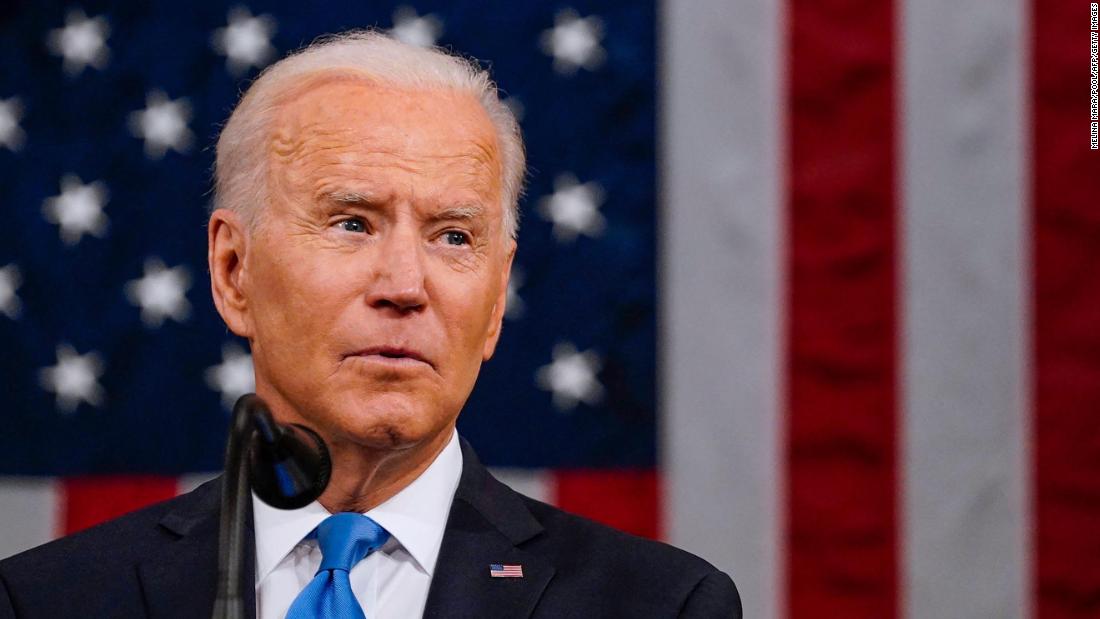There is an emerging gap between the President’s spoken words and those that appear on paper in his legislative agenda
But the heady comparisons are, at most, premature, and more likely wishful thinking. Even if Biden’s aspirations have been severely underestimated, the governing environment today — even with Democrats in control of Congress — is less conducive to the kind of enduring rewrites to the American social compact composed by his predecessors.
Now, though, comes a more intricate, complicated political challenge. The green shoots of economic recovery, juiced by March’s relief package, has created a welcome problem for Democrats. Absent the consuming impetus for action, both party centrists and progressives figure to be emboldened to drive tougher bargains on new legislation.
Worries of a lost summer
What’s clearer is how he’ll go about his business. Biden is a politician in the purest sense and his ability to position himself, through a combination of aggressive outreach and intuition, within touching distance of both poles of his party is a unique talent. He did not ride into the White House on the shoulders of a movement, but he clearly understands their power, just as his decades of experience counting votes in the Senate made clear their limitations.
“I do think that the infrastructure plan is too small, but I think that (Biden’s) vision was right — I think that what he advanced as some of these key goals were the right ones and they were admirable ones,” Ocasio-Cortez said. “But I have real concerns that the actual dollars and cents and programmatic allocations in the bill don’t meet the ambition of that vision of what’s being sold.”
A test of trust
So, they set about to create some padding.
Then, after the election, another hurdle: staffing the White House and administration. Despite installing many of the usual suspects — a handful of them distrusted or even loathed on the left — in the highest ranking jobs, Biden’s team also embedded a new generation of progressive policy thinkers into less flashy but influential roles, setting them up well not only for the coming months and years, but to begin a slow transition toward a more progressive-minded Democratic policy establishment.
Those early moves are inextricable from the confrontations on the table now, creating a more hospitable environment for constructive debate and a base of goodwill — and good faith — that could spare the party a return to its recent history of more corrosive clashes.
The authors described the American Rescue Plan as “an important step toward stabilizing the country” and cheered the administration for acting decisively when it became clear Republicans weren’t coming onboard. They also highlighted Biden’s rapid Covid response, his early rhetoric on climate change and the creation of a White House Office of Domestic Climate Policy, choosing progressive Deb Haaland to run the Interior Department and his recent commitment to fully withdraw US troops from Afghanistan.
But its kicker, after listing the issues where Biden had yet to move, was stark.
“The honeymoon,” they wrote, “is over.”
Rhetoric vs. reality
The left’s agenda is indeed broad, ambitious and, to date, largely unfulfilled. There is also an emerging gap between Biden’s spoken words and those that appear, on paper, in his legislative agenda.
But no amount of high-level meetings and robust, all-hours communication with progressive leaders can paper over the fact that the federal minimum wage remains unchanged, there has been no talk of expanding Obamacare to include a public option, as Biden proposed on the stump, or that a federal voting rights reform bill is stuck in the congressional muck. The Senate’s 60-vote filibuster remains in place and Biden doesn’t appear to have the appetite to pressure the moderate Democratic holdouts in the chamber, like Sens. Joe Manchin of West Virginia and Arizona’s Kyrsten Sinema, to climb down from their positions in support of it.
And without cracking that lock, the “go big” mantra embraced by the White House will remain just that: sloganeering. Biden, of course, can only do so much. There are 50 Democratic senators, not 60 — like President Barack Obama had for a brief period after taking office — or closer to 70, which helped FDR and LBJ get their signature programs over the line. But the new left is different from the last generation of liberals. They are younger, generally, and cut their political chops in the unrelenting cauldron of movement politics. That movement has matured over the past few years, and now has, in Sanders, the Budget Committee chair, one of its leaders in a seat of remarkable influence.
None of this is news to the White House, which navigated those tensions in the run-up to the passage of the American Rescue Plan and avoided any headline-grabbing brinksmanship over issues like stimulus checks early on in the process. When the Senate parliamentarian ruled out a minimum wage hike to $15 an hour, effectively striking it from the legislation, progressives fulminated but never threatened to pull their support.
But there is a line between cooperation and capitulation — and as the next 100 days of the Biden presidency unfurl, progressives will need convincing that the President isn’t daring them to cross it.
![]()


